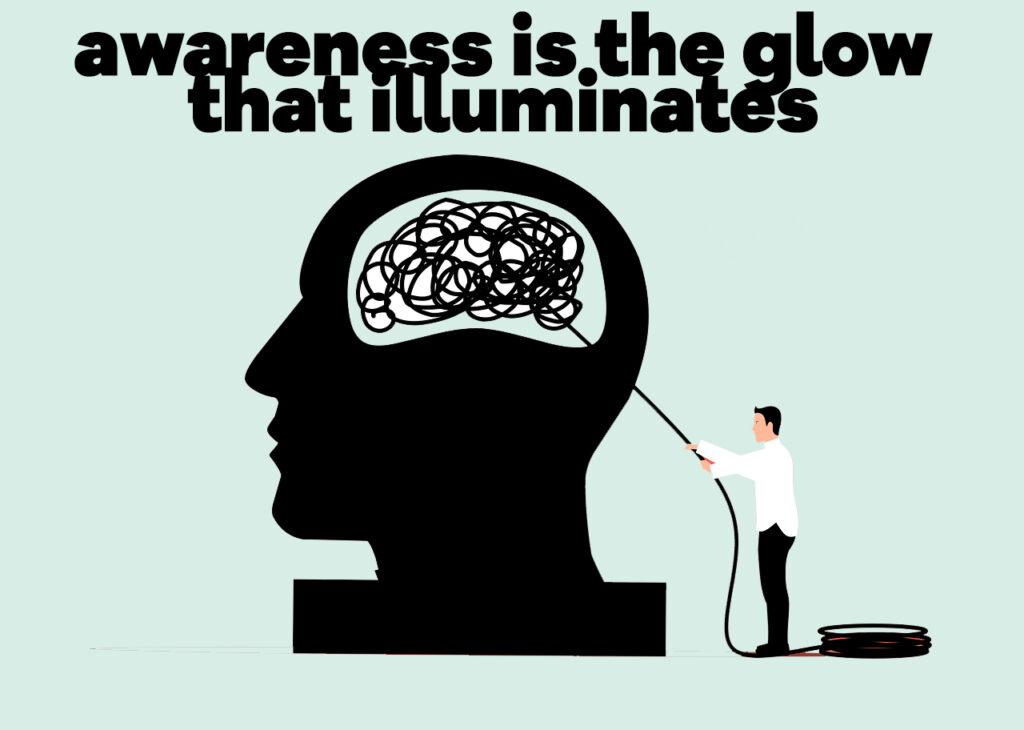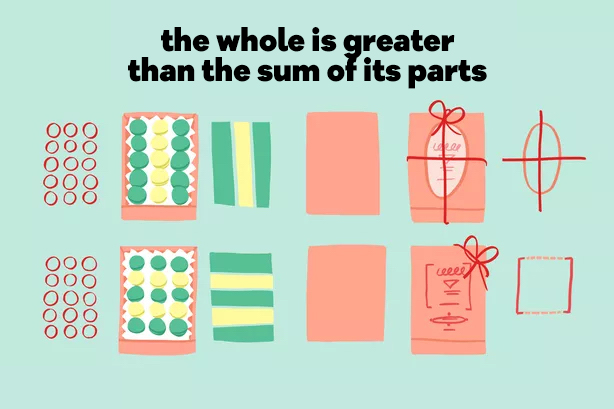Divya C. Berry is a London-based gestalt therapist with a decade of experience in working with creative gestalt therapy techniques. Feel free to get in touch at the bottom of this page to schedule a Gestalt therapy session around your needs.
What is Gestalt Therapy?
Gestalt Therapy evolved from Humanistic and Psychodynamic Therapy, and is essentially person-focused, here-and-now oriented and phenomenological; simplified, it means that the focus is what is happening to the client in their experience in the present moment and how they are feeling, not just in their mind, but equally in their body and being.
Further reading: the key concepts of Gestalt therapy
Gestalt therapy is experiential, in that it allows the client to share in their very real experience of feelings, without the tangle of too much thought and with the advantage of sharing their somatic (bodily) experience of emotion.
It brings with it the unique opportunity to focus on what is going on in the present moment, as opposed to delving only in the past – there is enough room however to go between the layers of the past, each time gently coming back to the present moment.
Discover whether therapy is right for you
Gestalt has a holistic quality, as indicated by its name, which from its German roots means ‘the whole‘ as greater than the sum of its parts – this is a fundamental quality of the therapy as well, in that what is in the larger ‘field’ of experience is as important as what is in front of us, and it places value on what moves from the background to the foreground and how we direct our awareness to the same.
Who is Gestalt Therapy for?
Gestalt is a creative therapy, and it is also inherently co-creational wherein an emphasis is placed on the relationship and rapport between the client and the counselor as the one that heals – specifically, this is the healing relationship, and it becomes possible for the client to tap into many emotions and delve into many phenomenological states within the safety created in the therapy room.
In many ways, Gestalt therapy is a process – it is not unidirectional, it is relational. It evolves over time and both the nature and quality of the therapy session are ever changing, hence allowing the impact of all environmental factors that exist from before and are brought into every session. Gestalt is both direct and swift, and extremely slow moving.
The immediacy of Gestalt allows a rather quick access to feelings that otherwise might take a long time to reach – this doesn’t mean the client is accosted with heaviness at any point, but rather that access to feelings is much quicker and easier. As for the heaviness, when felt, even that is brought into the session very objectively and directly, and it is common for a therapist to ask, “Where do you feel this heaviness? What does it look like?”
The slowness belongs to allowing the client to set the pace, so sessions may be brief and few, or much deeper and long-term. Freedom, within the principles of Gestalt, held firmly but openly by the defining features of the discipline, is what truly differentiates it from others – Gestalt therapy is for everyone, but perhaps most effective for anyone excited by reading this! As Fritz Perls said, “Anxiety is excitement without breath”.
Further reading: How Gestalt can help with anxiety
How will my approach to Gestalt therapy help you?
My approach to Gestalt therapy is essentially integrative, in that I work through the Gestalt lens, but utilize all aspects of my training, which is integrative, humanistic, and also belonging to the health and social psychology sphere.
To work integratively means to bring to the therapy session what the client needs, and while I help them to build a repertoire of skills, it is equally about utilizing my own ‘toolbox’ and being flexible to the needs of the client. In fact, flexibility and adjusting to change are amongst the foremost qualities of my own practice, and I hope to carry that essence forward in my client work.
Clients are encouraged to bring all their emotions – the good, the bad, the ugly, the in-between – and we will work together without siding with any of them
Clients are encouraged to bring all their emotions – the good, the bad, the ugly, the in-between – and we will work together without siding with any of them, hence there is no polarisation. Gestalt therapy works with both ends of the poles of human behavior, integrating the capacity to sit in the middle and observe both when needed, but without judgement or pressure to ascribe to either end.
Personally and professionally, that works really well with what I bring to the therapy room, which is a sense of being able to provide a calm and tranquil holding place for the client, akin to a still but silently moving pool of clear water, in which the client can see themselves just as they are. This is the Paradoxical Theory of Change in Gestalt – to quote, Arnold Beisser, “Change occurs when one becomes what he is, not when he tries to become what he is not”. In this sense, Gestalt can be key to help you unlock your potential.
What outcomes can I expect from a Gestalt therapy session?
Amongst the greatest benefit of Gestalt Therapy to the client is eventually to be able to work through all their narratives and come to a place where they can objectively take responsibility for ‘their part’ in that narrative; hence, moving from social support to self-support, which in the longer run is about ascribing responsibility for the ups and downs of one’s life to the self foremost.
Awareness and Gestalt

There is no end point of a specific therapeutic goal to a therapy session, but if there has to be one, then it is awareness – from this awareness emerges everything else. Awareness is seen in Gestalt as the glow that actually illuminates the situation, and hence once one has awareness, one can work more effectively with choice.
Increased awareness in fact leads us to a place where we may have to take responsibility for our choices or the lack thereof, and sit comfortably and mindfully with what that makes us feel. Effectively, it is our awareness, and the inner movement created by it, that becomes the catalyst for change – and we make that change, when we are ready.
Gestalt Therapy Techniques
- Working with the inner critic
- Addressing top dog/underdog
- Chair work – empty chair technique and two chair techniques
- Imagery
- Grounding through body work
- Visualisation
- Empathic listening
- Following the narrative
- Being in the room experientially
My Gestalt Therapy Training & Experience
Having worked in the mental health field for close to a decade, my experiences and training in Gestalt opened new vistas for me and hence into my practice as well – the lens provided by Gestalt allows the counselor to be with the client in an environment of trust, empathy, and self-disclosure when required.
My Diploma in Counselling at The Gestalt Centre was an immersive and expansive program, which involved hands-on training, in-depth study, client training, as well as vast experience of being in the client’s chair myself by virtue of receiving Gestalt Therapy myself.
The greatest asset provided by Gestalt to my therapeutic practice is the ability to hone in my own awareness, carefully through clinical supervision and peer work, thus making me open to receiving all the experiences that arrive therapeutically in my work setting.
More recently, I received training to be able to work online at various platforms, as were the demands of the pandemic and the restrictions put by the same. This in itself brought about a great degree of flexibility to the therapeutic experience, a flexibility that is the hallmark of what I may bring to the therapy session, albeit within the principles of my counseling contract and the rules of Gestalt Therapy. Thus, I am now able to offer my Gestalt therapy in London to the rest of the UK and worldwide.
Resources and Further Reading on Gestalt
- Gestalt Therapy Verbatim by Fritz Perls
- Enchantment and Gestalt Therapy by Erving Polster
- Brief Gestalt Therapy by Gaie Houston
- Gestalt Therapy Integrated by Erving & Miriam Polster
- Creative Process in Gestalt Therapy by Josepth Zinkler
- Gestalt Therapy: The Art of Contact by Serge Ginger
Final Thoughts on Gestalt
Gestalt therapy presents a unique opportunity to increase awareness of the body and mind, and ultimately of mindfulness. My London Gestalt therapy sessions are now available online or in person – simply get in touch using the form below.


